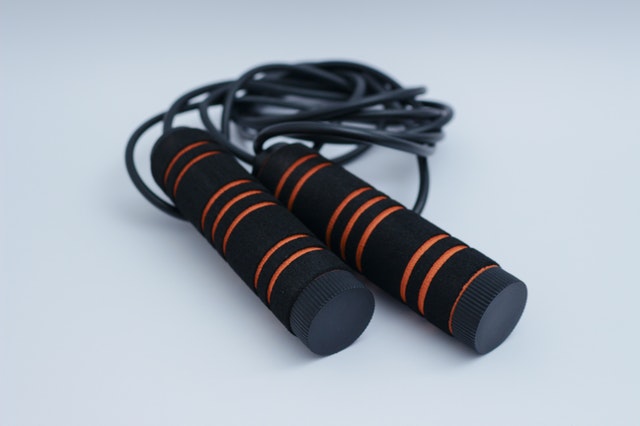A meal directly affects how you feel. For example, when you eat high-sugar, you will immediately notice it in your body. We are just not aware of it in all cases, when we listen more to the (sometimes subtle) signals from our body, it can generate a lot of energy. Get more energy through nutrition, and learn how in this article. Food can immediately give you stable energy for several hours. If you can use more energy, the very first step is to become aware of what your energy COSTS and take it out of your diet.
After a heavy evening meal with cheese, meat and pasta, for example, you usually have no energy left to do anything more active. But it also works the other way around, just one healthy meal full of fresh ingredients that give you energy will make you feel fitter right away. After a meal with healthy ingredients you get a constant energy, not first the energy peak and immediately afterwards a valley of a sugary food. You can compare it to a car, if you don't put the right fuel in it, it will sooner or later stop driving. So what you eat largely determines how much energy you have to get through the day. An unhealthy diet not only gives your body less energy, it also costs your body more energy, and a direct consequence of this is that you feel more lethargic and tired. We often feel unwell because we feed ourselves on automatic pilot with substances that our body does not actually tolerate well, for example when our body has to work too hard to digest them. You hardly notice it, you just accept that you feel a little bloated after a hearty meal. Or that you are always tired after dinner (after all, you have had a long working day). You don't know any better, but it can really be done differently. You can have a lot more energy (even after a long day at work) if you avoid foods that are harmful to your body and add foods that give you energy. you just accept feeling a little bloated after a hearty meal. Or that you are always tired after dinner (after all, you have had a long working day). You don't know any better, but it can really be done differently. You can have a lot more energy (even after a long day at work) if you avoid foods that are harmful to your body and add foods that give you energy. you just accept feeling a little bloated after a hearty meal. Or that you are always tired after dinner (after all, you have had a long working day). You don't know any better, but it can really be done differently. You can have a lot more energy (even after a long day at work) if you avoid foods that are harmful to your body and add foods that give you energy.
4 BIGGEST ENERGY THIEVES
1. FLUCTUATIONS IN BLOOD SUGAR
Blood sugar rises faster or slower depending on the type of sugar in your food or drink. With some species your blood sugar level rises faster than with others. The structure of the food that contains the sugar also partly determines how quickly the blood sugar level rises. Liquid sugars, such as in sports or soft drinks, lead to a faster rise than fiber-rich foods with slow sugars, for example the complex carbohydrates in quinoa. Sugars provide our body cells with energy. If you always eat high in sugar, your blood sugar will rise after every snack or meal. Your body produces insulin and ensures that the sugars are absorbed. The more sugars there are in the snack or meal, the harder the 'dip' then arrives once this fast energy has been absorbed by your cells. Your body then signals to the brain that your blood sugar level is getting 'too low'. That is the famous 'sugar dip'. As a result, the amount of energy that you have at your disposal varies enormously during the day. When you avoid sugary foods, you will have more stable energy throughout the day. With a balanced blood sugar level you are also clear of mind and physical exertion becomes easier. Unfortunately, food manufacturers don't just put sugar in sweets, cookies, cakes and desserts, they also put it in products where you would less likely expect it, such as soups, sauces, meats and salad dressings.
2. DIGESTION OF A LARGE MEAL
The main function of the digestive system is to break down nutrition so that nutrients can be absorbed by the body to energize, help grow and repair the body. Fried products and many highly processed foods, for example, contain trans fats. These are hydrogenated unsaturated fatty acids, they are not only harmful to heart and blood vessels, but they take your body much longer to digest. Meals with a lot of grains, cheese and meat also take your body more time and effort to digest. That requires an unnecessary amount of energy and gives a tired feeling after a meal. Never eat too much. As a guideline, you can assume that it is best to be 80% full, because you need the other 20% space to digest your food.
3. FOODS YOU ARE INTOLERANT TO
Sometimes you hardly notice that your body actually does not tolerate certain foods or substances well, but sensitivity or intolerances are much more common than we are aware. The degree of this varies from person to person, depending on your genetic material. For example, most people do not naturally respond very well to dairy products and lactose, but because we have been using milk products for so long in the Netherlands, we have slowly but surely got used to them. There are also more and more scientific studies that show that milk is not that healthy at all. The American Dr. Campbell, who wrote a book about this as a result of various scientific studies, claims that milk is actually unhealthy. He has in his book the consumption of milk, following the various studies,
4. DIGESTION OF BREAD
Another intolerance is gluten. This protein in wheat is found in bread, pasta and other pasta. In addition, gluten is processed in almost all non-perishable foods and factory foods. Gluten sensitivity is a growing problem as the food industry increasingly uses gluten. Due to its thickening and chewable structure, gluten is often isolated from grains and processed into a commonly used binding agent in the food industry. Due to this expansion of gluten in processed foods, we unnoticeably consume much more gluten daily than would be healthy for us. According to researcher Kenneth Fine, who specializes in research into the effect of gluten, 81% of the population is more or less predisposed to gluten intolerance. They are a permanent light burden on your digestive system. Most people hardly notice this light load until they start eating differently. This almost imperceptible burden is especially harmful in the long term. You can also see it with E numbers in your diet, for example. A small amount of such an additive once in your food is not necessarily harmful. It is about those several times a day and that for years in a row. When you start eliminating gluten from your diet, you will already have more energy after a week or two. Dr. Nicholas Perricone, a well-known American dermatologist, states in his book Forever Young that after decades of practical experience, he has observed that many of his patients have low-grade chronic inflammation and fatigue.
NEVER TOO LATE FOR RESULTS
Small changes can make a big difference. Don't try to change your entire diet all at once, this is a recipe for failure. The first step is a small but important step towards the bigger goal, a real improvement for your health and more energy. It is never too late to start with a healthy diet. About 80 percent of your body cells are renewed every year. Your body is constantly changing, it rejuvenates and makes new cells every day. This means that after a year your body is made up of everything you have ingested in that year in terms of nutrients. In this way you are literally what you eat, and you therefore have full influence on that.
MORE ENERGY THROUGH NUTRITION
When you then add the following foods and substances to your diet, you will quickly experience that you get more energy and have more energy, even after a long working day.
1. WATER
Drink plenty of water. Our body needs to be hydrated enough to stay healthy and function properly. If you drink too little you can get very tired and even get a headache. As a guideline, we recommend that you drink at least your body weight x 0.44 divided by 10 liters of water every day. With a weight of, for example, 75 kilos, the calculation is therefore: 75 x 0.44: 10 = 3.3 liters. Advice from other experts such as advisor at The Food Doctor Clinic in London Ian Marber and author of the book 'Water Detox' Jayne Scrivner recommend a minimum of 1.5 to 2 liters per day. Increase your water intake gradually and it will make it easier for you to drink more water. In addition, we are (also unconsciously) thirsty more often than hunger and sometimes we confuse thirst for a feeling of hunger. Dehydration reduces your energy and your physical performance, even during exercise. A study (Yamamoto L, Judelson D et al) from California State University found that dehydration makes athletes more difficult to complete a weight workout. Researcher Judelson states that it is plausible that dehydration not only makes for less sporty presentations, but that this also applies to people who just do chores or housework.
Other research in 2012 (Armstrong LE, Ganio MS, Lieberman HR and published in The Journal of Nutrition) shows that even mild dehydration causes mood swings, concentration problems, headaches and fatigue. This was the first study in which the researchers looked at the effect of light and mild dehydration. Lieberman states that we can simply experience these levels of dehydration in our daily life if we drink a little too little.
2. GREEN SMOOTHIES
A green smoothie is made from fresh leafy vegetables (for example 200 grams of spinach, endive or lettuce) and a maximum of two pieces of fruit (for example apple, pear, banana or orange), two to five cups of water and possibly some targeted superfoods (for example with maca powder for more energy). You do this together in the blender until it is a solid shake. A green smoothie gives you immediate energy, but also a full feeling, thanks to the fibers of the leafy vegetables and sufficient water. When you start the day with a green smoothie, you prevent yourself from craving something tasty later in the morning. The vegetables in the smoothie give us minerals, we get vitamins from the fresh fruit. With a green smoothie you meet the generally recommended amount of fruit and vegetables in one fell swoop. As a result, the body starts to replenish any shortages of vitamins and minerals and that is the basis of a balance in your hormone system and more energy. Another advantage is that you increase your fiber intake. Research in 1999 (Holt SH, Delargy HJ et al and published in International Journal of Food Sciences and Nutrition) showed that a breakfast with a high content of fiber gave more energy and alertness until lunch, compared to a breakfast with a high fat content.
3. VEGETABLE JUICES
Instead of green smoothies, which are made with a blender, you can also make vegetable juices using a juicer or slow juicer. This squeezes all the juice out of the vegetables and leaves the fibers behind, which has the advantage that all nutrients from the vegetables can be absorbed into your bloodstream much faster. This allows you to supplement shortages even faster. Vegetable juices are less satiating, precisely because they contain almost no fiber. So both green smoothies and vegetable juices both have benefits for your health and energy.
4. VITAMIN B12
One of the most essential vitamins for your body is vitamin B12. This vitamin is involved in the metabolism of every cell in our body and fulfills a crucial function in processes such as energy production. Because B12 plays an important role in converting carbohydrates, proteins and fats into energy, it is necessary that we have enough B12 in our body so that we can get energy from our diet. B12 therefore provides more energy (in case of a deficiency) and also has a positive effect on the functioning of the immune system. B12 has a balancing effect on the body: it increases your energy, but also calms it at the same time. Deficiency is more common than thought, several studies have been done, described in The American Journal of Clinical Nutrition, and from that you could conclude that 3 to 5% of the total population would be deficient in B12 (by the standards of mainstream medicine). A number of different claims about B12 have been approved by the European Food Safety Authority (EFSA), an independent research institute. Their scientific research is the basis for European policy and legislation in the field of food safety. One of these claims is: B12 contributes to the reduction of fatigue and supports energy levels. Sources of vitamin B12 in food are meat, preferably organic meat from animals that have eaten grass. Fish, preferably wild fish, especially crab, mussels and shellfish, and eggs. If you want to prevent a deficiency, eat organic meat or wild fish every now and then.
FINALLY
Convenience food is offered almost everywhere. It is made very easy for you to eat unhealthy food, convenience foods are available everywhere. It helps to ensure that you always have enough ingredients ready for a tasty healthy meal in your fridge at home. You can give this meal exactly your taste. Healthy eating is not a punishment and certainly not a diet, choose the pure foods that you like and make eating a party.
More information about nutrition and maximum energy can be found on the member website of our Maximum Health Program . In this program you will receive a personal analysis of your hormone balance and personal guidance to become healthier and to get (back) more energy. Do you have experience with nutrition and your energy yourself? Would you like to read your reaction under this article? And perhaps you will inspire others with it.








0 Comments